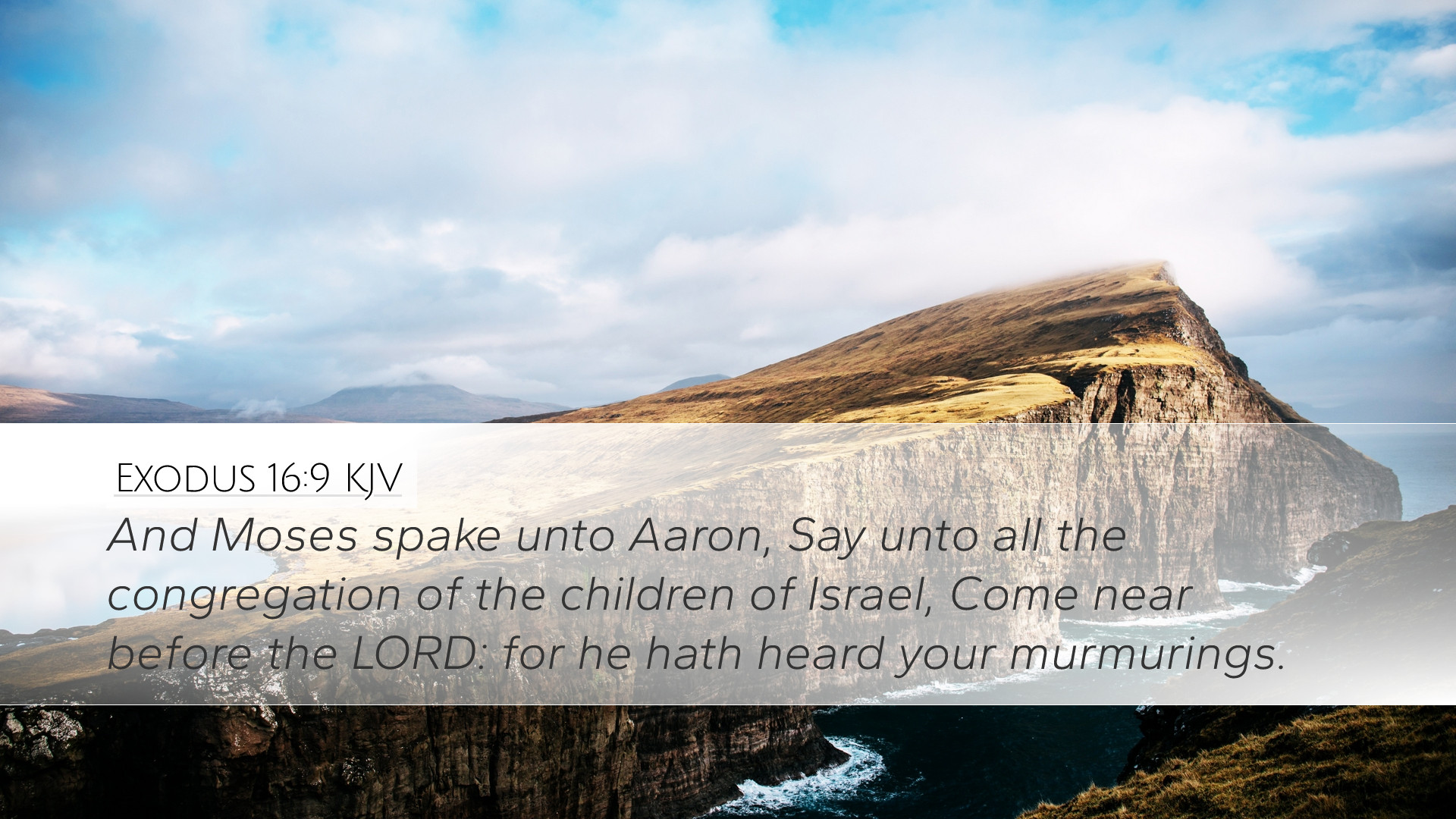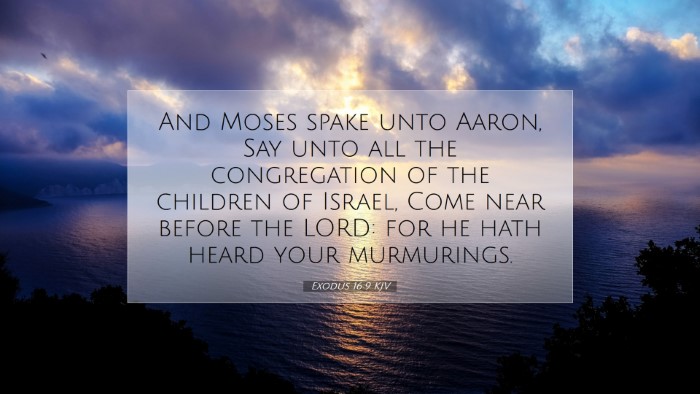Commentary on Exodus 16:9
Exodus 16:9 reads: "Then Moses said to Aaron, 'Say to the whole Israelite community, “Come before the Lord, for He has heard your grumbling.”'" This verse occurs within the larger context of God's provision for the Israelites in the wilderness, illuminating themes of divine guidance, human dependence, and communal faith.
Historical Context
In the narrative leading to Exodus 16:9, the Israelites have escaped slavery in Egypt but face hardships in the desert, including hunger and dissatisfaction. Their grumbling signifies a breach in their faith and trust in God's provision, which serves as a pivotal moment for both judgment and grace.
The Role of Moses and Aaron
Moses as a leader and Aaron as his spokesperson exemplify the importance of divinely appointed leadership. Matthew Henry notes that Moses, upon receiving God’s instructions, calls Aaron to communicate God's message, emphasizing the need for community leaders to be messengers of hope and guidance:
- Leadership in Crisis: They guide the people in times of discontent.
- Intercession: Their roles as mediators between God and the Israelites are crucial during testing times.
Divine Response to Grumblings
The mention of God 'hearing' the grumbling speaks volumes about His nature. It underscores the theological assertion that God is attentive to the cries of His people, regardless of their attitude. Albert Barnes highlights that while the complaints were devoid of faith, God's response was essentially filled with grace:
- God’s Patience: Despite their complaints, He responds with provision (manna) rather than punishment.
- Mercy over Judgment: This moment illustrates God's commitment to His covenant with Israel.
The Invitation to Come Before the Lord
Moses urges the Israelites to come before the Lord, which signifies an invitation into divine fellowship. Adam Clarke interprets this as:
- Communal Worship: The call is not singular; it encourages collective approach, emphasizing unity in worship and acknowledgment.
- Recognition of Need: It reflects an awakening to their need for divine provision and acknowledgment of God’s sovereignty in their hardship.
Theological Implications
This verse serves multiple theological implications for various audiences: pastors, students, theologians, and scholars:
- Pastoral Application: It highlights the essential role of pastors in guiding congregations through spiritual discontent.
- Student Reflection: Students of the Word can see the narrative as a lesson in trust and the necessity of faith in times of testing.
- Theological Reflection: For theologians, it presents profound reflections on the nature of God as both a hearer of complaints and a provider of grace.
- Scholarly Inquiry: Scholars might delve into the literary structure of Exodus to analyze the interplay of grumbling and divine response.
Conclusion
Exodus 16:9 is a rich verse that encapsulates the struggles between human frustration and divine providence. Through the communication of Moses and Aaron, the acknowledgment of complaints, and the invitation to approach God, this passage vividly illustrates God’s persistent faithfulness amid human doubt. As believers reflect on this text, they are encouraged to consider their own reliance on God’s provision and the importance of worshiping together in community.
Such insights derived from historical and theological perspectives provide a well-rounded understanding for various audiences who seek to deepen their engagement with Scriptural texts.


